#radical liberalism
Text
LIBERALISM’S LACK OF EXPLICITEDNESS?
Adam Gopnik offers an insightful description and explanation of the origins of liberalism – tracing that origin to the 1860s and the contributions of John Stuart Mill and Harriet Taylor[1] (see previous posting, “Romantic Liberalism” [2]). Through his review, Gopnik establishes that essential to liberal thought and speech (their critical words), they go beyond “liberty” and “democracy” and include “humanity,” “reform,” “self-realization,” “pluralism,” and “autonomy.”
These terms reflect the establishment or the strengthening of a self-selected community with its governance – the creation of which is not accidental but due to reflected action. That describes a federated arrangement in which a people come together and establish, by common consent, the polity that will govern them.
And in addition, that polity will govern with a sense of shared purpose, that being “eliminating cruelty and sadism and needless suffering from the world.”[3] But how specific are these ideas that one associates with liberalism or how well are they combined to show one the way to a better society?
Here, Gopnik takes a bit of a turn in his explanation and feels it necessary to describe the role that town centers played through the centuries in how liberalized life became possible. More than merely being symbols for this view or belief of common folk having a say in governance, town centers or the Italian piazza played a central role through the centuries. It is not by accident that these centers became targets of such authoritarian powers all the way back to the times of the ancient Persians and Spartans.
These centers often served as markets as they provided the practical reason for townspeople to gather, but they functioned beyond providing provisions. They became centers for sharing concerns and voicing demands and wishes. They also provided face-to-face contacts among the townspeople where empathy could develop and strengthen. In terms of Western democratic tradition, the Greek agora played that important role.
More currently, a good deal of liberalism, as a thought-out construct, can be traced to the Enlightenment of the seventeenth century, but its definitive character, according to Gopnik, seems to have been established in the 1859-1872 period and he gives a good deal of credit to Mill’s contribution, On Liberty (along with Charles Darwin’s Origin of the Species). Historically, along with these written sources, there were also the historical events of the American Civil War and the establishment in France of the Third Republic.
Gopnik explains: “Darwin’s was a new articulation of the history of life and humanity’s place within it, implicit but obvious, and Mill’s was the articulation of a new understanding about the nature of authority and the individual’s claims against it.”[4] And given the events of the mid to late 1800s, people were more apt to reconsider the culturally determined place that average people should take in the political landscape.
The North winning the American Civil War with its emancipation of slaves prodded democratization beyond American borders. It encouraged it in Britain, for example. It reenergized democratic forces in France. And it threatened authoritarian voices in Germany under the leadership of Otto Von Bismarck while enhancing the socialist message of Karl Marx.
This indicates a bit of diversion and, as such, reveals a lack of a pointed message. That would be a message with a definite plan for a perceived future that would put into effect the favored democratic governance. Instead, what emerged was an idealistic vision based on broad democratic principles. In turn, this allowed these varied reactions just mentioned and reflected its lack of rulemaking or definitive direction.
Gopnik writes: “It tends to hold implicit and explicit ideas about community, reform, violence, sexual roles, and more. Liberalism … is an attempt to realize liberty, not merely to invoke it or make it the subject of an incantation.”[5] In the opinion of this blogger, this reflects a looseness in definition or theoretical rigor. And this lack of definitiveness plagues liberal advocates to this day.
It allows for such offshoots as those mentioned above or for the natural rights view that disdains any social or legal restraints on human behavior on just about any level of social concern – from laws to norms to habits. As this blog has repeatedly claimed, this last view took dominance in the US in the years following World War II and has grown in its influence ever since.
With that transition, the general sense of duty and obligation of citizenship – which was described in the last posting and is part and parcel of Mill and Taylor’s promotion of liberalism – has eroded. In its stead, a contractual – quid pro quo – view has taken hold and dismissed a compact-al – partnership – view that had been dominant in the US from America’s colonial period to the mid-twentieth century.
And this blogger believes that that transition has been highly instrumental in generating the increasingly polarized politics that the nation is currently experiencing. Surely the argument of this posting could be more solid in its reasoning, but it is offered as an interpretation. That is, liberalism as experienced today has become radicalized.
Whether liberalism, in its essence, has gone through various forms from its inception, readers have a good dose of latitude to judge. As for this blogger, he would like to see a re-establishment of Mill and Taylor’s apparent bias toward federated ideals and away from radical liberalism.
[1] Adam Gopnik, A Thousand Small Sanities: The Moral Adventures of Liberalism (New York, NY: Basic, 2019). The factual claims of this posting are based on the information this source provides.
[2] Robert Gutierrez, “Romantic Liberalism,” a posting, Gravitas: A Voice for Civics, a blog, accessed January 3, 2024, URL: https://gravitascivics.blogspot.com/2023_01_24_archive.html.
[3] Gopnik, A Thousand Small Sanities, 14.
[4] Ibid., 14.
[5] Ibid., 17. Emphasis added.
#liberalism#town centers#American Civil War#federated ideals#natural rights view#polarized politics#radical liberalism#civics education#social studies
0 notes
Photo

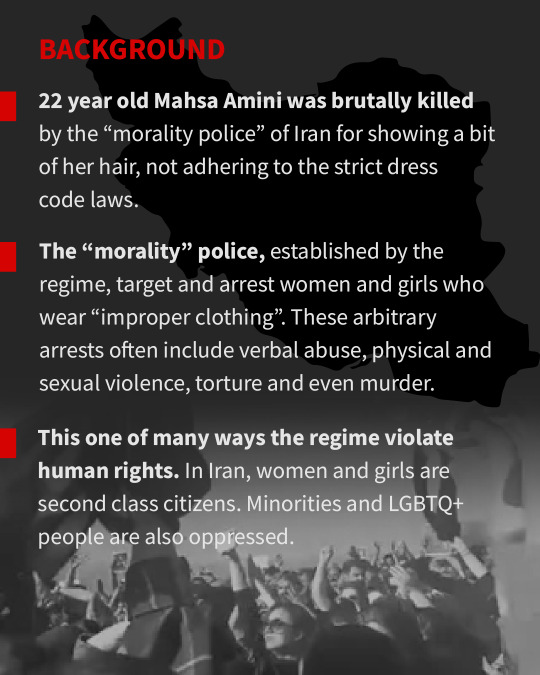

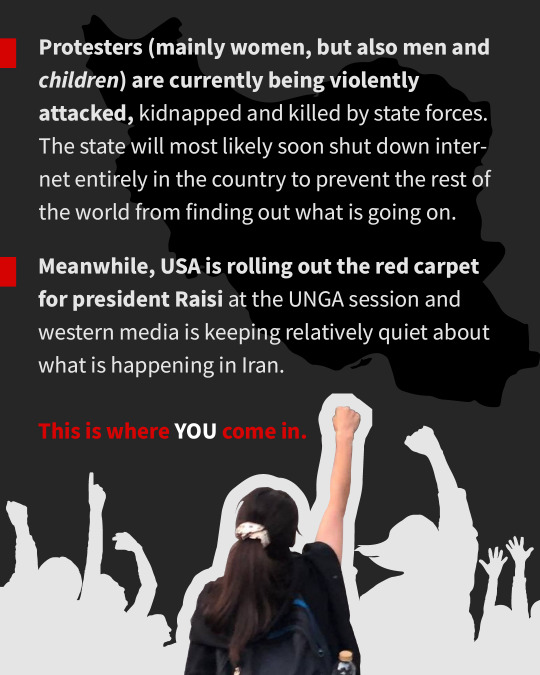


32K notes
·
View notes
Text
you want to normalize prostitution. I want public hangings for sex buyers. we are not the same.
#radical feminism#radical feminists do interact#adult human female#anti prostitution#terfblr#gender critical#terfsafe#feminism#male violence#misandry#male entitlement#liberal feminism#gender roles
2K notes
·
View notes
Text
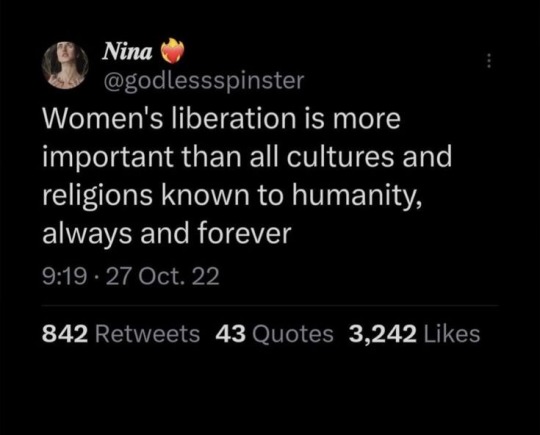
#if womens liberation upsets the fragility of your culture or religion#your culture or religion is the issue#radical feminists do interact#radblr#feminism#half the population
1K notes
·
View notes
Text

So what you're saying is
You don't actually want feminist book recommendations
#feminism#radical feminism#radblr#terfblr#fake feminism#liberal feminism#Guess what if you don't want to read anything vaguely critical you've already failed feminism 101
1K notes
·
View notes
Text
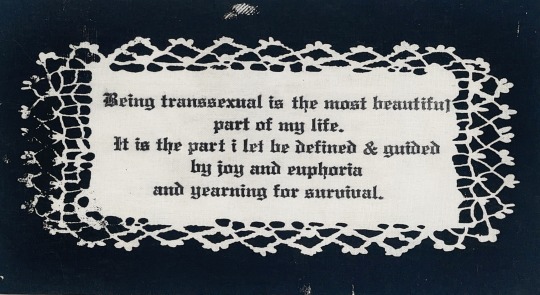
Transsexual love notes part 3/5
Letterpress and screenprint on linen cloth
#messy queer#radical queer#transsexual#transgender#trans artist#transsexual artist#trans liberation#liberation not assimilation#queer#trans joy#trans pride
2K notes
·
View notes
Text
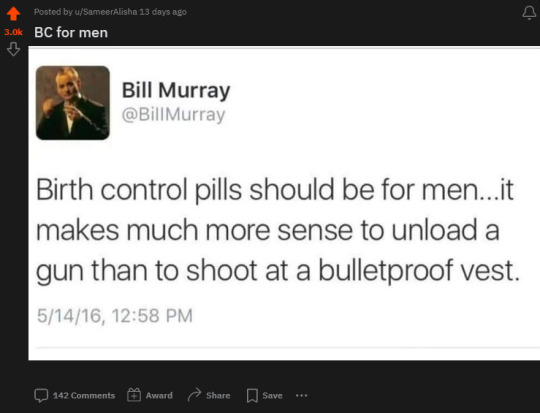
#feminism#lgbtqia#lgbtq community#queer#lgbtq#lgbt pride#toxic masculinity#gender roles#intersectional feminism#patriarchy#liberal feminism#radical feminism#radical feminist safe#mysogyny#trans liberation#radical feminists do touch#radical feminist community#radical feminists do interact#birth control#reproductive rights#abortion rights#abortion#bodily autonomy#reproductive health
2K notes
·
View notes
Text
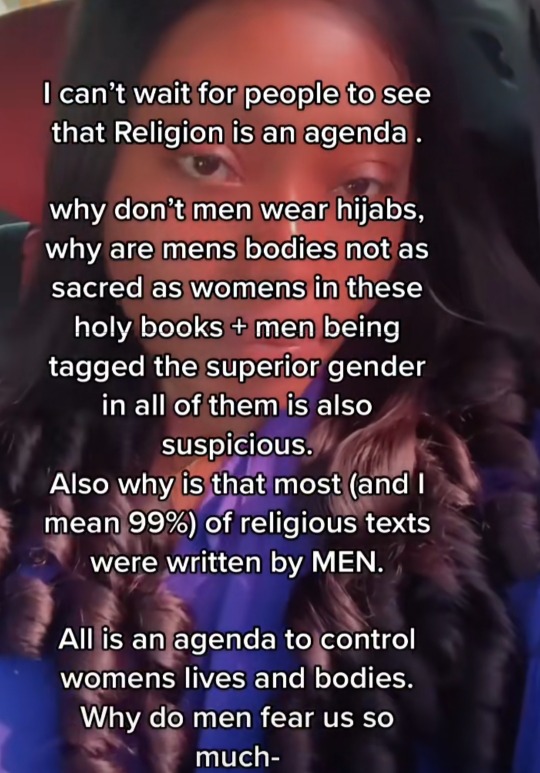
Another based TikTok woman being 100% right about religion, love the tendency ✊
#radfem#radical feminism#radfem safe#radfems do interact#radblr#feminism#radfems do touch#women's rights#women's liberation#religion#anti religion#anti islam#anti muslim#anti hijab#islam opresses women#islam hates women#anti christianity#abrahamic religions#christianity#islam#muslim#hijab#hijabi#women's oppression#abolish religion#abolish islam#religious#holy book#quran#bible
3K notes
·
View notes
Text
The empathy women have, particularly towards other women, is exploited by men in order to perpetuate the cycle of female servitude.
You see all the men in the living room talking and chatting while the women clean up the dishes. You want to tell the men that you're not doing it, it's not fair that it's always the women... but that would mean leaving your mothers, aunts, sisters, cousins, grandmas to clean up without your help. So you help clean up.
Your mother does the brunt of the housework, cooking, cleaning. She complains to the entire family that it's too much. The males say that they'll try to make less mess and then get on with their lives. But you see your mother struggling, so you pick up the mop, the vacuum, the broom, the scrub brush. You don't want her to do it all on her own.
Your female friend or family member is struggling to take care of her kids and babies. Her husband gets a boys night out, fantasy football, golf, sports matches, time to just sit and watch TV uninterrupted. But she doesn't. So you volunteer to take care of her kids so that she can have some time to herself.
The greatest weapon men utilise against women is our empathy for one another. Because they know that at the end of the day, most women aren't as selfish as they are.
#gender critical#lgb#radblr#radical feminism#radfem friendly#dropthet#terfblr#feminism#terf#radical feminists do interact#terfsafe#male violence#male oppression#female liberation#womens rights#women
2K notes
·
View notes
Text

#radical memes#anarchist#anarchy#trans rights#transgender rights#USAuthoritarianism#righteous indignation#youth liberation#human rights#abortion rights#poverty#politics#society#political#capitalism#women's rights#socialism#reproductive rights#i was today years old#when i learned#how to use tags#i have been on this webbed site for almost 14 years#meme#dankest memes#dank memes#dank meme#hardcore revolutionary memes#agiprompt#the only real response#us authoritarianism
455 notes
·
View notes
Text
I hope in 2024 lots of women leave their shitty husbands
#feminism#radical feminists do interact#radblr#women#radical feminism#radical feminist safe#adult human female#womens empowerment#marriage#women’s liberation#liberation
2K notes
·
View notes
Text
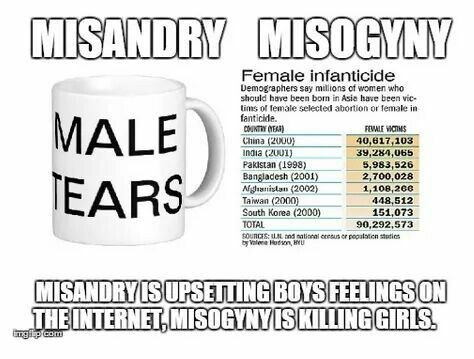
Misandry doesn't exist
#radblr#radical feminism#radical feminist#radical feminists do interact#radfem#radical feminist community#radical feminist safe#female liberation
545 notes
·
View notes
Text
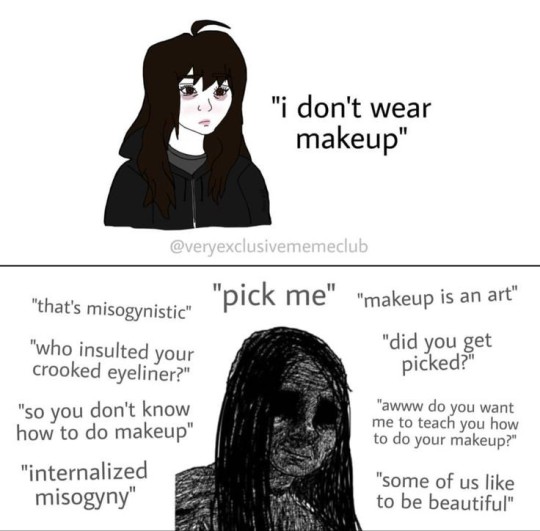
#none brain with left gender#anti liberal feminism#anti libfems#gender critical#anti gender roles#anti makeup#anti cosmetic industry#anti capitalism#anticapitalist#radfem safe#radfems please touch#radical feminism#terf safe#terfs please touch#terfblr#radblr
1K notes
·
View notes
Text
what an actual policewoman looks like vs what a sexualised adult costume of a policewoman looks like:


and now take a guess as to which of these two little girl's halloween costumes are modelled after






they're not making costumes to give girls the chance to see themselves as their idols, they make costumes to groom girls into being sexualised for the rest of their lives
#radblr#radical feminism#radical feminists do interact#radical feminists please touch#gender critical#feminism#terfblr#gc feminism#gc feminist#gender abolition#radfems please touch#radfems please interact#radfem safe#police#costume#costumes#halloween#feminist#libfem#liberal feminism#feminists#gender is harmful#don't sexualise children
972 notes
·
View notes